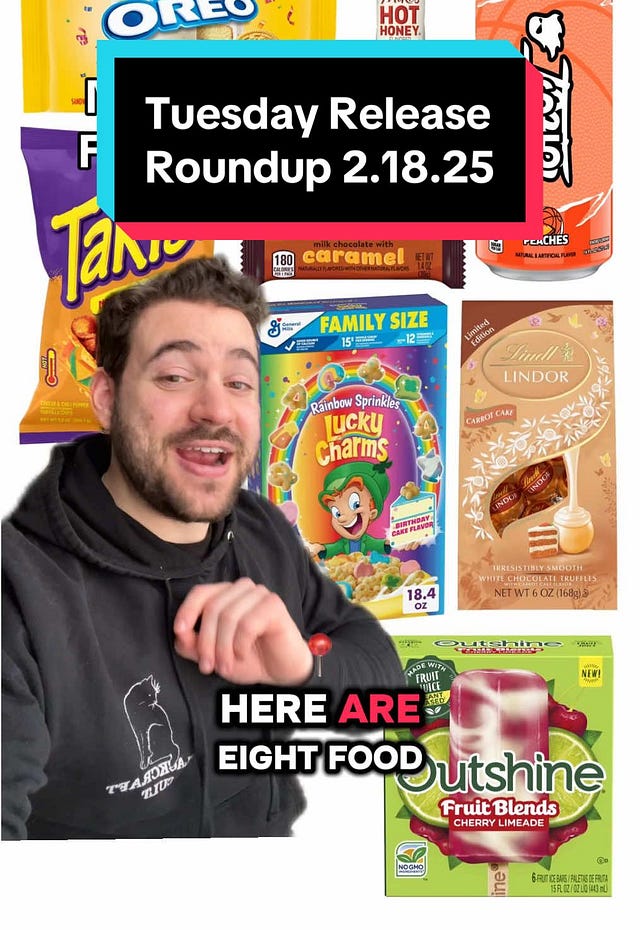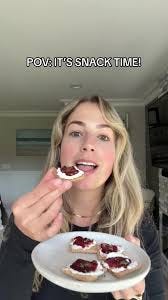A Taste of Now: When Small Pleasures Become the Point
What snacking culture in 2025 reveals about us
Between doomscrolling through multiple crises and watching our bank accounts battle egg-flation, 65% of global consumers say, 'snacking helps me take my mind off the issues of the world' (up 5% since the pandemic) - suggesting these small moments of joy aren't just coping mechanisms, they're becoming strategic tools for well-being.
Our latest Harris Poll x Mondelēz State of Snacking report reveals something telling: 71% of global consumers now say, "sharing snacks with others is my love language" (up 8% from 2023). Snacking isn't just a habit anymore - it's become our most strategic response to modern life. And this isn't a temporary coping mechanism - the data shows a fundamental shift in how we approach pleasure, with year-over-year increases in intentional snacking behaviors signaling a lasting change in our relationship with food and joy.
Petit Pleasures, Rightsizing Portions
The data tells us something we feel in our bones: 71% of Gen Z and Millennials prefer grazing throughout the day to rigid mealtimes. What we're calling 'petit moi' living is taking over, with 73% preferring “a smaller portion of an indulgent snack than a bigger portion of a low fat/sugar alternative version.” This isn't isolated - from the rise of GLP-1 drugs reshaping our relationship with portions, but it also mirrors a broader shift toward micro-luxuries (e.g., 10-minute meditation sessions, capsule wardrobes, etc.). We're seeing a fundamental change in how we value satisfaction. We're not downsizing our pleasures; we're right-sizing them for a world that demands fluidity.

It's Giving Permission
"Life is more fun with a bit of indulgence," say 87% of people, say 87% of people, and they're not just talking about snacks. Eight in 10 agree that "Snacking is my way of treating myself after a productive day" - a number that jumps to 85% for Millennials and 84% for Gen Z. In a world where everything is measured and analyzed, 76% just want to enjoy their snacks without overthinking ingredients. It's about claiming our right to find pleasure without justification, to seek joy without a thesis statement.

 Tiktok failed to load.
Tiktok failed to load.Enable 3rd party cookies or use another browser
Taste Testing Life
Scroll through TikTok and you'll find an endless stream of solo snackers documenting their latest discoveries - from ranking every Oreo flavor to breathlessly sharing their "you have to try this" combinations. This isn't just passive consumption - 75% 'get excited when they find a new snack to try' (up 7% from last year), while 60% say social media has inspired them to try something new (up 9% in the last year). But beneath this public performance of pleasure, there's something more interesting happening. The rise of what we're calling "snack adventurers" (67% and growing) isn't just about content creation - it's part of a larger cultural embrace of finding joy on our own terms.
These aren't just influencers; they're pioneers of a new kind of pleasure-seeking where solitude is a feature, not a bug. Just as solo travel and dining alone have shed their stigma to become aspirational, these snack explorers show us that joy-seeking doesn't need an audience (even if they choose to share it with one). A striking 81% of consumers use snacking to find quiet moments alone (up 9% from last year), turning solitude into a luxury rather than a compromise.
The public-private tension here tells us something important: while we might share our snack discoveries, the actual moment of enjoyment is deeply personal. It's about curating our own perfect moments of pleasure, whether or not we choose to hit record.
The Vibe Shift Is Real
For brands and marketers, this isn't just about changing consumption patterns but fundamentally rethinking their role. The winning strategy isn't about selling snacks anymore; it's about creating permission-free moments of joy. When consumers say they want to enjoy without overthinking, they're asking brands to be their accomplices in pleasure rather than their nutrition coaches.
The momentum in the data is clear year-over-year; we've seen significant increases in almost every measure of intentional snacking and pleasure-seeking. This isn't a trend; it's a transformation in how we choose to live: fluidly, joyfully, and unapologetically in the moment. And right now, that's precisely what we need.
Shout out to Abbey Lunney, Tim Osiecki, and Ethan Hermann for leading this research!
3 Links
Coke’s $7 Billion Bet on Milk Hits Big, But Wall Street Wants More (fun fact I worked on this brand) (Bloomberg)
Eggs are so expensive, NYC bodegas have started selling loose eggs to customers (NBC)
The Cool Restaurants Are on OpenTable Now (Resy Backlash!) (GrubStreet)
Curiosity is contagious; if you like this newsletter, please share it!!
Penned by Libby Rodney and Abbey Lunney, founders of the Thought Leadership Group at The Harris Poll. To learn more about the Thought Leadership Practice, just contact one of us or find out more here.
Thanks for reading The Next Big Think! Subscribe for free to receive new posts and support my work.







